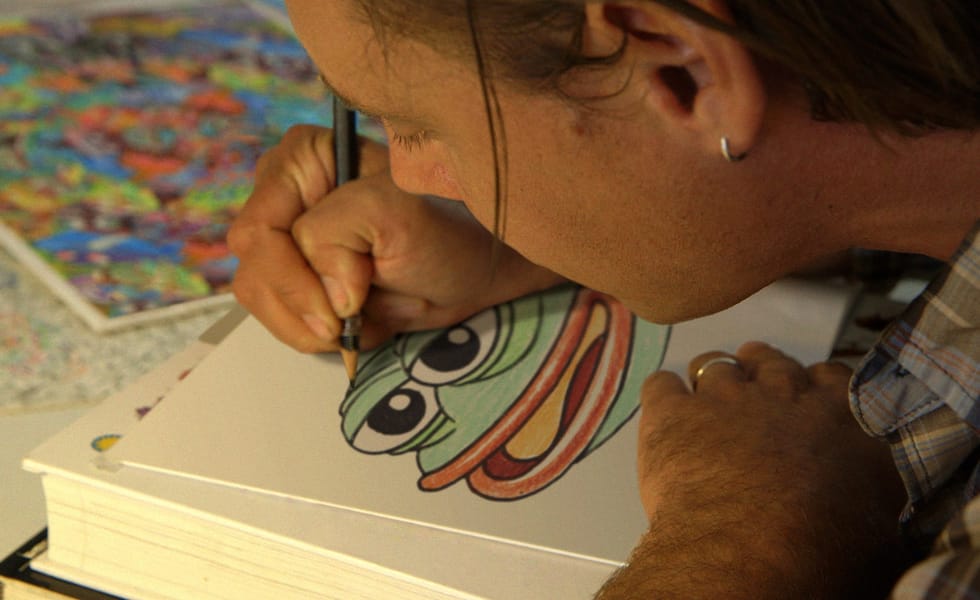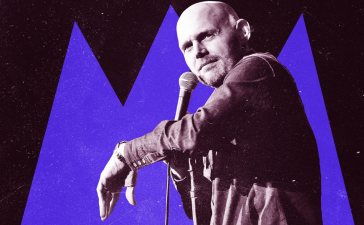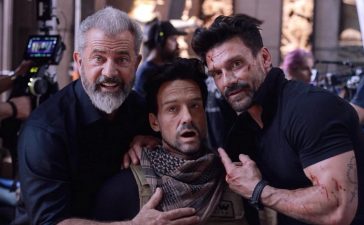There’s really no way to overstate the importance of meme culture. The fun, simple images we once sent to grandma are now used to sway elections, destabilise governments and inflict pain with startling efficiency.
It’s this re-contextualisation of crudely drawn communiqués that lays at the heart of Feels Good Man, a documentary that covers the mind boggling story of illustrator Matt Furie and how his creation Pepe The Frog was ripped from his hands by the alt-right. Pepe went on to become the face of regressive, violent online activity that spilled over into the real world with devastating results.
Having said that, Feels Good Man is about much more than a wayward meme, and its creator’s mission to reposition it as a symbol of hope, not hate. It’s a film that highlights the issue of media illiteracy, the proliferation of online hate and the ever present, though oft ignored, IRL background hum of goodness.
Ahead of its screening as part of the Brisbane International Film Festival, and its subsequent release on DocPlay come October 22nd, we caught up with director Arthur Jones and writer/producer Giorgio Angelini to learn how they strapped a saddle onto one of the most challenging and untamed beasts to ever enter the zeitgeist: The alt-right.
“It was very clear from the beginning that the film had a pretty wide breadth of possibilities,” Giorgio says of the documentary’s arch, rife with twists, turns and unexpected escalations.
“The whole project was such a wild scavenger hunt. There were a bunch of times we were pinching ourselves and being like, “how did we find ourselves here?” Arthur adds.
Despite heading into the project with a considerable handle on the topic, at times Giorgio and Arthur assumed the position of the audience member, watching on as the story unfurled before their eyes. In no uncertain terms, Arthur pinpoints the moment that he realised this story had taken on a life of its own. “That was Hong Kong,” he concludes, referring to the footage of Hong Kong protests that climax the documentary.
“All of a sudden,” after researching the story for so long, “Pepe shows up on the other side of the world as part of the protest movement against authoritarianism.”
Shacked up in the editing room and struggling with a fitting conclusion to the film, Arthur and Giorgio were yet to take stock of the then-escalating situation in Hong Kong, which had seen Pepe the Frog repurposed, yet again, in the hands of pro-Hong Kong protesters.
After a tip-off from interview subject and journalist Aaron Sankin, the pair learnt that the universe had conspired for a fitting finale.
“Aaron was like, ‘[there’s] a protest where people are holding hands and every person is supposed to bring a Pepe’. So, everyone’s holding hands with a Pepe as their connector and that all happened so quickly in a way that I just felt like, wow, this is kind of out of our control. How did this all work out so perfectly?”
One thing the duo weren’t leaving to chance were the optics of covering something as challenging as the alt-right and the online culture wars. Mainstream media has proven an inability to grasp the nuance of the subject and in awkward, fumbling features, tend to give the alt-right message a platform to be heard with very little challenge. In Australia, we needn’t look further than The Hack inviting an active Neo-Nazi on for a concerningly casual interview.
Arthur and Giorgio were determined that Feels Good Man would not give fascists a chance to pontificate. “That was the biggest thing we talked about,” Arthur says.
“After the Charlottesville protests, the Unite the Right protests were covered in most places.” He continues: “But, good-intentioned new sources were doing exactly what you said. They were taking these members of the alt-right and letting them speak. They were unintentionally valorising these guys.”
“Ultimately,” Giorgio adds, “What was interesting is not necessarily the toxicity of some of their ideas, but really the conditions that allowed all of this to happen.”
He points to their interview with a self-described NEET (Not in Education, Employment or Training).
“Why it is that a twenty-five year old guy would choose to live in a basement with his mum and spent every waking hour of his life on the internet, trying to like eke out this meager living, basically ingratiating himself with other alienated young white men?”
This angle provided them a clear-cut route around providing a platform for Alt-Right foghorns – by leaving them out of the discussion all together.
“At the end of the film, we have our occultist, he says, “Pepe is an omen and you have to listen to what he has to say.” And that’s the kind of truth of the film is that beyond what happened in the U.S. with Pepe in 2015 and 2016, I think, it really is a global phenomenon that has nothing to do really with like racism or anything…it does have to do with a sense of youthful malaise and alienation from an economy and a system where people feel like the world is on fire and no one is doing anything to stop it. That kind of palpable anxiety for some reason is manifested into the weird dopey face of Pepe, he ends up becoming the kind of face of this emotional valence, I guess.
“That was a far more interesting story to tell than just like putting a racist on camera and being like, ‘Here’s your platform, say your racist shit.'”
Feels Good Man doesn’t just avoid platforming regressive, hateful views, it essentially shirtfronts them by showcasing so much of the documentary’s protagonist Matt Furie, a gentle, softly spoken and incredibly kind man. The yang, as it were, to the alt-right ying.
“Matt is someone who I think has a real natural charm,” Arthur recalls of their time filming together. “He is a low-key guy, but he ultimately becomes a stand in for the way a lot of people feel. In the way that Pepe was stolen from Matt and it was out of his control, a lot of people feel as though consensus reality has been stolen from them the last few years.”
Giorgio emphatically agrees.
“[Matt’s] like a perfectly naive, imperfect hero who is experiencing his own transformation on camera. And that’s the most you can ask for as a documentary filmmaker, is to be able to capture an inauthentic transformation of someone on camera.”
However, the benevolence of Matt isn’t enough to overpower the malevolence of the alt-right. Though void from the discussion of the documentary, it’s still an uneasy presence in the room. As such, when Feels Good Man fades to black, any audience member paying attention will be filled with the conflicting feelings of joy, for instance at the growth experience by Matt throughout his journey, but also dread, largely due to the implications that the issue of weaponised memes is far from over.
“It’s very easy to make a film like this and have it end on a kind of note of despair,” Giorgio says of the conflicting final emotions. “But, we also didn’t want it to end on this kind of an authentic sacren moment.”
Indeed, Arthur and Giorgio don’t seem so concerned with the final feeling in their audience members, but instead what we do with that feeling. Giorgio points to a quote from Matt, wherein he describes his weapon of choice against hate, fascism and the alt-right at large: “Hardcore happiness.”
“The reason we wanted to leave that quote in there was because it’s a kind of reminder that while mental health is obviously a very real issue and depression is a very real thing, we also have a lot of agency in how we engage with the world. It’s become very easy to engage in things that sort of push us towards the darkness and that’s a choice.”
Speaking to the lasting impact that Feels Good Man has had on his life, Arthur explains the bigger picture takeaway, pointing to the background radiation of digital surveillance capitalism: “The internet is not a monolith. People have the ability to kind of exert their will on it”
“This movie is about media literacy. It’s about understanding the world we live in and about how the internet affects that. We have to start thinking about how these social media platforms are using the attention economy for their own economic aspirations. We’re new fossil fuels. We are the new natural resource attention economy…
“And that’s something that we do need to combat.”










